"200mcg rhinocort for sale, allergy symptoms head pressure".
L. Rasarus, M.B. B.CH. B.A.O., M.B.B.Ch., Ph.D.
Medical Instructor, Touro College of Osteopathic Medicine
The two and three payment plan options begin any time prior to the due date for the semester allergy dog food discount rhinocort 100mcg mastercard. All plans require a down payment allergy control products buy 200 mcg rhinocort otc, which is the first payment plus the $25 contract fee allergy medicine symptoms discount 200mcg rhinocort free shipping. For more information allergy forecast florida best rhinocort 100mcg, call the Student Accounts Office at 703-993-2484 or go to studentaccounts. Failure to pay the deferred balance by the due date will result in a financial hold, a late fee of 10% (up to $125), collection activity, and may prevent future eligibility of the payment plan. Third-Party Billing Authorizations Students using a third-party billing authorization will be charged a $25 processing fee. Check "Important Dates" on the web site for the deadline to submit third party payment authorizations. Call 703-993-2484 for a copy of third-party billing requirements, or check the web at studentaccounts. Penalties A late registration fee of $125 is automatically assessed to students who add their first class on the first day of the semester or after. It does not apply to students already enrolled prior to the start of the semester who make schedule adjustments. Late registration fees are nonrefundable and will not be removed, regardless of enrollment status. Any class registration after the deadline to add classes, if approved by the academic department, is subject to a late registration fee of up to $125. Late class registrations require an account in good standing and prepayment of all charges. Past due balances are subject to a late payment fee that is 10 percent of the balance due, up to $125. Students must withdraw from all classes that they do not plan to complete by the payment due date to avoid the late payment fee on those classes. Returned Checks George Mason University 2016-2017 Official University Catalog 27 Per Commonwealth of Virginia statute, the return check fee is $50. Repeat return checks may result in the restriction of this payment option for future semesters. Checks used to pay past due balances and/or to release holds for registration that are later returned unpaid by a financial institution may result in the immediate suspension of academic services. Returned checks that create a balance will be sent a written or electronic notice, and a financial hold will be placed on the account until the balance is paid in full. Financial Good Standing; No Holds on Record Financial good standing and a university record clear of holds are required for students to receive academic services. Services, including but not limited to transcript issuance, diploma release, and class registration (add, drop, withdrawal, etc. Examples include unpaid Student Health charges, fines owed to the Mason or Washington Research Library Consortium libraries, parking and other administrative holds. Students in noncompliance with payment deadlines as of the end of the semester will be required to submit a financial guarantee or prepayment prior to future registration. The return of the prepayment by a financial institution will result in the immediate suspension of academic services. Collections Failure to meet financial obligations to the university will result in other collection procedures, which include account referral to credit reporting bureaus, private collection agencies, the Commonwealth of Virginia Department of Taxation, and the Office of the Attorney General. Past due accounts are subject to garnishments, liens, and judgments and the withholding of money from tax refunds. In addition to late fees and interest, delinquent accounts will be assessed additional collection fees equal to thirty percent of the past due balance, reasonable attorney fees, and other administrative costs. Course Withdrawals Students are required to pay full or partial tuition for courses they withdraw from after the last day to drop with full tuition refund, including withdrawals to change from one section of a course to another section. Refund Policies Direct Deposit Refunds Students must sign up for direct deposit for expedited refunds by completing the form located on the Student Accounts Office website.
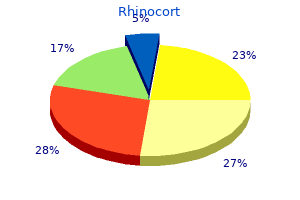
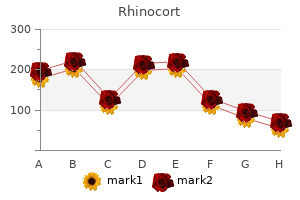
This will alter or halt further progression in the nursing program and affect the expected graduation date allergy shots phoenix az 100mcg rhinocort with amex. Professional Conduct Policy All students in the School of Nursing are expected to adhere to the Professional Conduct Policy of the College of Health and Human Services allergy testing naples fl discount rhinocort 100 mcg amex. Students in the School of Nursing wishing to appeal a grade are expected to follow the Mason guidelines for grade appeals allergy treatment xanthoma discount rhinocort 200 mcg fast delivery, found in the Academic Policies section of the University Catalog allergy testing kerry generic 200 mcg rhinocort with amex. A final cumulative assessment exam is given toward the end of the program to provide the student with guidance about their chance for success on the licensing exam. A final course in critical thinking and test-taking strategies is required in the senior year, and remediation in select content areas may be required as a component of this course. The availability of personal transportation to and from clinical agencies is required of all students. For a summary of all current fees and estimated expenses, see the School of Nursing web site. See the Undergraduate Program, School of Nursing website for the most current information. Students are not allowed into any clinical setting without the completed immunization series as prescribed by Mason or the School of Nursing and may have an offer of admission withdrawn for inability to meet these requirements. The School of Nursing reviews health records and reserves the right to refuse admission or continued enrollment to any student who is unable to comply with these requirements. The American Heart Association Basic Life Support - Health Care Provider is required. All students must have current health insurance before entering the first clinical nursing course and maintain it through the remainder of the program. All students are expected to practice Universal Precautions with all clients, and failure to do so will result in termination from the nursing major. In the event that a student is exposed to body fluids of a client during a clinical experience or practicum, procedures and appropriate reports are completed according to institutional and nursing policies. Information related to exposure or infection is confidential, and dissemination of such information is based on the need-to-know criteria that apply in health care situations. Human Lifespan Development: Any 3-credit human lifespan development course or equivalent as approved by advisor. Additional eligibility requirements include a grade of C or better in all Mason Core courses and electives. This full-time accelerated program begins in the fall semester and is completed in 12 months. The non-nursing baccalaureate degree must be completed by the end of the spring semester of the year a student desires to be considered for fall admission. Meeting the minimum requirements does not guarantee admission into the nursing program - it only allows an application to be considered in the review process. Second Degree Pathway Requirements Candidates for the degree must present at least 120 credits: the Mason Core requirements are satisfied by the initial degree and fulfilled through transfer credit. Designated nursing prerequisites: 24 credits Concentration requirements: 47 credits. A minimum of 30 credits must be earned at Mason to fulfill requirements for graduation. The objective of the program is to prepare graduates for the highest level of nursing practice. Emphasis will be placed on evaluating and applying the evidence that supports practice, understanding and creating practice delivery systems based on patient outcomes, and assuming leadership roles in practice settings. In the curriculum, five concentrations are available to the post-baccalaureate student. Graduates of the program will be able to assume many roles in the health care system, including direct patient care, clinical nursing faculty, practice management, and policy development. George Mason University 2016-2017 Official University Catalog 377 Admission Requirements Applicants must meet the admission standards and application requirements specified in the Admissions section of the catalog and must apply using the online Application for Graduate Admission. Transfers Between Programs or Concentrations Students may not transfer between programs or concentrations. Applicants will be considered for admission with all other applicants for that program or concentration, with no guarantee of acceptance. If accepted, please be aware that more than half of the credits earned for the new degree must be taken after acceptance to the new nursing program or concentration.
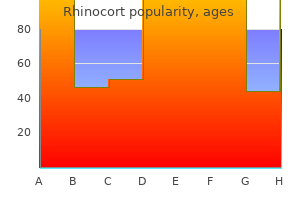
Intended for mathematics specialists and teachers interested in problems of learning and assessment across K-8 settings in mathematics education allergy herbs purchase rhinocort 100mcg without a prescription. Engages students in research allergy symptoms children cheap 100 mcg rhinocort with mastercard, study allergy warning label rhinocort 200mcg free shipping, and discussion of factors that affect teaching and learning of mathematics in school settings allergy medicine libido buy rhinocort 100 mcg amex. Prerequisite(s): Course in teaching science in elementary or secondary school, or permission of instructor. Guides students in working effectively with national and local standards for George Mason University 2016-2017 Official University Catalog 2628 teaching secondary English. Examines instructional methods and materials in relation to secondary mathematical content, curriculum, and assessment. Emphasizes integrating science and technology, and adapting instruction to the needs of diverse learners. Topics include multiple learning styles, alternative forms and assessment, and teaching diverse populations. Emphasizes technology, safety, professional development, and related organizational change issues. Develops the skills and abilities of the mathematics leaders to analyze classroom practice, investigate teaching and disseminate information about mathematics education in professional development settings for teachers. Explores methods for co-planning and co-teaching in the general education classroom and their families. Explores methods for co-planning and co-teaching in the general education classroom and ways for sharing responsibilities for instruction and assessment. Includes ways for dealing with difficult interactions are part of understanding how to implement collaborative and inclusive models of education for diverse learners. Admission to the Culturally and Linguistically Diverse and Exceptional Learners concentration or permission of the program. Promotes collaboration among teachers and school professionals to advance achievement of diverse learners. Develops an understanding of the assumptions and frameworks of different types of science education inquiry through an examination of ways of knowing. Examines theoretical foundations of research studies in science education, discusses methodologies of research, critique research, and examines trends in emerging science education research. Includes presentations by science education researchers as well as opportunities for graduate students to explore research ideas with colleagues within the class. The scholarship embodied in student development to this point in the doctoral program will lead students to work with a science education faculty member of their choice to development and seek to answer a research question of interest. Notes: Yearlong seminar for PhD students in the mathematics education leadership cohort program. Focuses on science education standards at local, state, national, and international levels. Students review common core of research literature and topics of individual interest. Reviews common core of research literature; students conduct research of individual interest. Emphasizes understanding decision-making structure and process; current issues; and trends. Topics include description of engineering disciplines, functions of the engineer, professionalism, ethics and registration, problem solving and representation of technical information, estimation and approximations, and analysis and design. Students must identify work opportunity and seek advisor approval prior to registering. Students will apply concepts and theories from the classroom to an industrial setting. Prerequisite to all English courses numbered above 302 unless otherwise noted: Satisfaction of University requirements in 100-level English and in Mason Core literature. Studies logical, rhetorical, and linguistic structure of expository prose, with attention to particularly difficult aspects of the language for non-native speakers. Notes: For non-native English speakers, Students must attain minimum grade of C to fulfill degree requirements. This course is the first of a two-part course for students in the Undergraduate International Pathway Program.
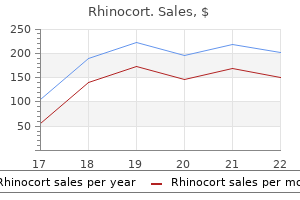
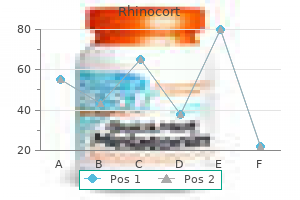
Furthermore allergy treatment in quran generic rhinocort 100 mcg free shipping, excessive alcohol intake appears to cause resistance to antihypertensive therapy allergy medicine you can take while breastfeeding cheap rhinocort 200mcg on line. Moderate alcohol consumption may reduce overall cardiovascular risk in the general population allergy forecast atlanta ga best 100mcg rhinocort, but whether any risk reduction also occurs in the hypertensive population is uncertain guna-allergy treatment 30ml generic 200mcg rhinocort mastercard. Alcohol consumption is not recommended for hypertensive non-drinkers; for drinkers, intake should be limited to 1 oz of alcohol (2 oz of 100-proof whiskey, 8 oz of wine, or 24 oz of beer) a day in most men and half that amount in women and small men. If the goal blood pressure is not achieved in response to a given intervention, the additional interventions indicated in the lower boxes are added. An observational study of a large cohort of hypertensive persons, all of whom were advised to restrict their sodium intake, showed that men in the lowest quartile of sodium excretion had a four-fold greater risk of heart attack than did those in the highest quartile. This observation, as yet unconfirmed in prospective, controlled trials, raises the possibility that sodium restriction may be harmful for some hypertensive persons. Moderate sodium restriction (4 to 6 g of salt per day) can generally be recommended to hypertensive patients, with the realization that only a subset will benefit. Such sodium restriction can be accomplished by not adding salt to food during preparation or at the table and avoiding processed foods containing salt as the preservative. Salt substitutes, in which sodium is replaced with potassium, are useful in hypertensive patients who do not have renal dysfunction. Furthermore, 75 to 90% of adults in the United States fail to consume the recommended daily allowance of calcium (1000 mg for adults younger than 65 years; 1500 mg for adults older than 65 years). Maintaining the recommended calcium intake, preferably from food sources, is also beneficial for preventing osteoporosis and perhaps gastrointestinal malignancy. Hypertensive patients should maintain adequate potassium intake (50 to 90 mmol/day) by eating fresh fruits and vegetables. Potassium supplementation should be avoided or used only with extreme caution in patients with renal insufficiency, in diabetics, and in patients receiving potassium-sparing diuretics. Hypokalemia should be particularly avoided in patients receiving digoxin and in patients with known coronary artery disease inasmuch as it predisposes to arrhythmia. Potassium-sparing diuretics should be considered in patients who are hypokalemic before initiation of diuretic therapy or in whom hypokalemia develops while receiving a non-potassium-sparing diuretic. Furthermore, changes in or discontinuance of treatment is frequent: several large studies of hypertensive patients have shown that 50 to 70% of new treatments were changed or discontinued within the first 6 months. Non-adherence to prescribed therapy is a major problem in the management of hypertensive patients, and maximizing adherence is more important than choosing a specific drug regimen. Clues to non-compliance include frequently missed appointments, failure to manifest the expected biologic effects of prescribed drugs such as heart rate slowing with beta-adrenergic blockers, and alcohol and substance abuse. The establishment of a good relationship with the patient and free and open communication about hypertension, its complications, 266 and the goals and pitfalls of treatment are critical in enhancing compliance. A positive and supportive approach to treatment-with the message that a drug regimen that is effective can be found for most patients-yields the best results. The initial choice of antihypertensive drug treatment is a topic of great interest and controversy for a variety of reasons, including the development of new drugs with real or perceived advantages over existing agents, cost issues, the lack of morbidity and mortality data for the newer agents, and a paucity of data comparing the efficacy and tolerability of agents from different classes. In the Captopril Prevention Project, captopril and conventional antihypertensive therapy with diuretics or beta-blockers had similar efficacies in preventing cardiovascular morbidity and mortality in nearly 11,000 randomized patients. Neither study had the power to compare the effects of the treatments on cardiovascular outcomes. Clinical trials in progress around the world, with a projected patient enrollment of 200,000, are addressing this issue. Current data indicate that short-acting dihydropyridine calcium channel blockers are associated with an increased risk of adverse cardiovascular outcomes when compared with other medications and should be avoided. For the minority of hypertensive patients without co-morbid conditions, target organ damage, or concomitant cardiovascular risk factors, drug therapy should begin with a diuretic or a beta-blocker (see. For most patients, however, co-morbid conditions may dictate the choice of another class of drug and/or avoidance of diuretics and beta-blockers for initial therapy (see. For patients with coexistent diabetes mellitus or cardiovascular disease, randomized controlled trials have provided compelling indications for initial drug choices from specific drug classes. When monotherapy is unsuccessful, a second agent, usually of a different class, should be added. In contrast, traditional fixed-dose combinations, which contain full conventional doses of each component, should be reserved for patients who do not respond adequately to monotherapy.


